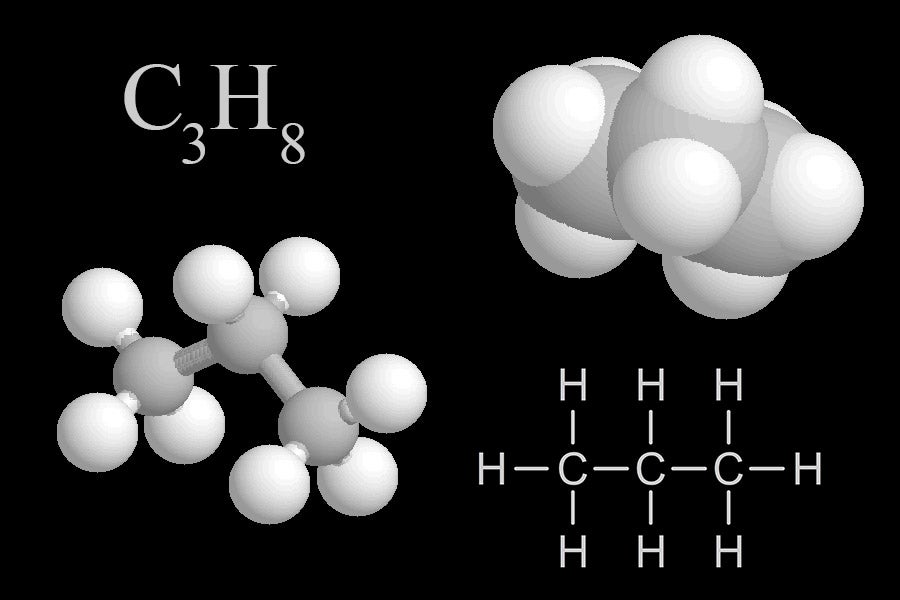Propane molecule - Hydrocarbon example

UCAR/ Randy Russell
Propane is a type of gas, commonly burned for heating, cooking, and as a fuel for engines. Propane is an example of a class of chemicals called "hydrocarbons". Hydrocarbons are made up entirely of carbon and hydrogen atoms. Hydrocarbons and their byproducts contribute to air pollution.
Shown here are four representations chemists use for propane. In the ball-and-stick (lower left) and space-filling (upper right) models, carbon is light gray and hydrogen is white.